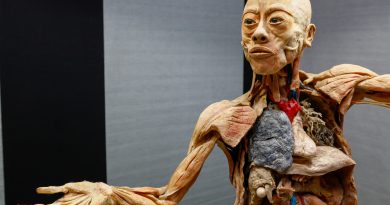why was pavlov experiment important
The United States and other countries have embarked upon brain-mapping initiatives, and Pavlov would have endorsed their principal goal: to create a dynamic picture of the brain that demonstrates, at the cellular level, how neural circuits interact. Conditioned Stimulus (Metronome) > Conditioned Response (Salivate). American Psychologist, 52(9), 941-946. According to the English physiologist Sir Charles Sherrington, the spinal reflex is composed of integrated actions of the nervous system involving such complex components as the excitation and inhibition of many nerves, induction (i.e., the increase or decrease of inhibition brought on by previous excitation), and the irradiation of nerve impulses to many nerve centres. During the 1890s he identified ways in which different parts of the body, through the nervous system, affect movements in the intestinal canal as well as secretion of gastric juice and other secretions. Pavlov also discovered that these reflexes originate in the cerebral cortex of the brain.. That which constitutes the culture, the intellectual strength of the nation, has been devalued, and that which for now remains a crude force, replaceable by a machine, has been moved to the forefront. Simply Scholar Ltd. 20-22 Wenlock Road, London N1 7GU, 2023 Simply Scholar, Ltd. All rights reserved. For example, the repeated use of a drug could cause the body to compensate for it, in an effort . Verywell Mind's content is for informational and educational purposes only. Translated and edited by Anrep, GV (Oxford University Press, London, 1927). But our mental processes aremore mysterious than we realize. He opted to use food as the unconditioned stimulus, or the stimulus that evokes a response naturally and automatically. 6.2 Classical Conditioning - Psychology 2e | OpenStax He recognized that meaningful changes in physiology could be assessed only over time. Through the digestive process, the body extracts nourishment and energy from food. The salivation reflex, as Pavlov called it, was mainly triggered when the dogs tongue made contact with food. After a few pairings the dogs salivated when they heard the bell even when no food was given. Pavlov wanted to see if, as he suspected, universities in Europe or America would fund his research in circumstances that would prevent his dogs and lab workers from starving. First the dogs were presented with the food, they salivated. One of Pavlov's earliest publications was his 1897 text The Work of the Digestive Glands, which centered on his physiology research. Kendra Cherry, MS,is the author of the "Everything Psychology Book (2nd Edition)"and has written thousands of articles on diverse psychology topics. He had hoped to become a novelist, and majored in English. Pavlovs research originally had little to do with psychology; it focussed on the ways in which eating excited salivary, gastric, and pancreatic secretions. It was nearly a full-time occupation; at least a third of Pavlovs colleagues at the Russian Academy of Sciences died in those first post-revolutionary years. 2023 Dotdash Media, Inc. All rights reserved. Pavlov's Dog: Pavlov's Theory of Classical Conditioning - Verywell Mind His most famous experiment dealt with behavior and used dogs. As his formulations and models grew more complex, Pavlov was encouraged in his hope that he would be able to approach psychology through physiology. Biography of Ivan Pavlov, Father of Classical Conditioning. In simple terms, two stimuli are linked together to produce a new learned response in a person or animal. Pavlov was able to train, or condition, the dog to salivate at the sound of the metronome or buzzer by initiating the sound and then offering food to the hungry animal. Soviet leaders even engaged in a debate over whether to celebrate his eightieth birthday. Pavlov always wanted to go and teach psychology to renowned universities outside of Russia, but Lenin never allowed him as the communists felt that he was the intellectual property of Russia. No scholar of Pavlov or of the disciplines he inspired will be able to ignore this achievement. He decided to conduct his experiments on dogs. Fact checkers review articles for factual accuracy, relevance, and timeliness. B.F. Skinner Operant conditioning was first described by behaviorist B.F.Skinner, which is why you may occasionally hear it referred to as Skinnerian conditioning. When Pavlov discovered that any object or event which the dogs learned to associate with food (such as the lab assistant) would trigger the same response, he realized that he had made an important scientific discovery. Who Was Ivan Pavlov? Psychology And The Impact Of Classical The Nobel Prize in Physiology or Medicine 1904, Ivan Pavlov - Nobel Lecture: Physiology of Digestion. Pavlovs experiment involving his dog helped to discover what today we callclassical conditioningorrespondent conditioning.if(typeof ez_ad_units!='undefined'){ez_ad_units.push([[300,250],'historyofyesterday_com-medrectangle-3','ezslot_5',104,'0','0'])};__ez_fad_position('div-gpt-ad-historyofyesterday_com-medrectangle-3-0'); Classical conditioning refers to the ability to control or trigger natural behaviors with a new stimulus. In behaviorist terms, food is an unconditioned stimulus and salivation is an unconditioned response. With theories that have been developed over the last two centuries, it became much easier to understand the psychology behind social behaviors. He instructed Petrograd Party leaders to increase rations for Pavlov and his family, and to make sure his working conditions improved. By signing up, you agree to our User Agreement and Privacy Policy & Cookie Statement. Pavlov showed that classical conditioning leads to learning by association. At the turn of the century, Pavlov had begun focussing his research on psychic secretions: drool produced by anything other than direct exposure to food. Thank you for your cooperation.You can sign-up to the Membership any time to remove the adds and enjoy the content with no interruptions, by Andrei Tapalaga | Oct 24, 2022 | Science. Pavlovs findings were important to behaviorism because they demonstrated how animals learned about events in their environment. After receiving an M.D. The conditioned response (CR) is the response to the conditioned stimulus. Say what you will, but he bears a great resemblance to your tender and loving admirer., Pavlov entered the intellectual world of St. Petersburg at an ideal moment for a man eager to explore the rules that govern the material world. Workers at a lab that studied digestion noticed that the dogs used in the experiments were drooling for seemingly no reason at all. Pavlov's dog subjects were responding to the sight of the research assistants' white lab coats, which the animals had come to associate with the presentation of food. During chronic experiments, when the animal, having recovered from its operation, is under lengthy observation, the dog is irreplaceable, he noted in 1893. . In his experiment, he tried to create the salivation reflex in the dogs when they did not have food in their mouth. Principles of classical conditioning are used to treat the following mental health disorders: For instance, a specific type of treatment called aversion therapy uses conditioned responses to help people with anxiety or a specific phobia. Drawing upon the brain science of the day, Pavlov understood conditional reflexes to involve a connection between a point in the brains subcortex, which supported instincts, and a point in its cortex, where associations were built. Its mechanism, however, was and still is shrouded in profound obscurity. Pavlov was also able to demonstrate that the animals could be conditioned to salivate to the sound of a tone as well. Fourteen laureates were awarded a Nobel Prize in 2022, for achievements that have conferred the greatest benefit to humankind. In Russia this idea became the basis for treating psychiatric patients in quiet and nonstimulating external surroundings. . The brain loves to create patterns that allow connections to be developed, thus fostering a more effective response time when encountering the same stimulus. Over time, the person starts to understand the pattern, and they automatically jump back when they hear a toilet flush even if the water coming out of the shower didnt change temperature. How did Pavlov discover classical conditioning? Psychon Bull Rev. Ivan Pavlov may not have set out to change the face of psychology, but his work had a profound and lasting influence on the science of the mind and behavior. At this point, the response becomes known as the conditioned response. In fact, taste aversions generally occur after just a single pairing. Content is fact checked after it has been edited and before publication. Pavlov watches an experiment with one of his dogs in 1934 (Source: Wikimedia Commons), She demands rent from everyone who lives on Earth. Ivan Pavlov studied the various processes of digestion, in part by exposing sections of a dogs intestinal canal through surgery. By Kendra Cherry Darwins theory of evolution was starting to reverberate across Europe. Pavlov, I. P. (1927). It is for me a kind of God, before whom I reveal everything, before whom I discard wretched worldly vanity, he wrote. That unexplored world was the mechanics of the human brain. Figure 6.3 Ivan Pavlov's research on the digestive system of dogs unexpectedly led to his discovery of the learning process now known as classical conditioning. . Imagine a person taking a shower with warm water. To make this experiment as reliable as possible Pavlov started using different conditional stimuli as well as different dogs and all presented the same exact results, showing that neural reflexes or social behavior can be trained to trigger by different stimuli than natural ones with repetition. Each was equipped with an esophagotomy and fistula from which a tube led to the collection vessel. Then, in 1927, when he was twenty-three, he read an essay by H. G. Wells about the Russian physiologist Ivan Pavlov. Stalin agreed. Classical conditioning refers to learning that occurs when a neutral stimulus (e.g., a tone) becomes associated with a stimulus (e.g., food) that naturally produces a behavior. Moscow: Foreign Languages Publishing House. During the 1890s, Ivan Pavlov was a Russian physiologist who was researching salivation in dogs as a response to being fed. Is there a database for insurance claims? Pavlov died in 1936 with thousands of people attending his funeral. Todes argues that Pavlovs devotion to repeated experimentation was bolstered by the model of the factory, which had special significance in a belatedly industrializing Russia. Pavlov grew potatoes and other vegetables right outside his lab, and when he was sick a colleague provided small amounts of firewood to burn at home. After his doctorate, he spent some time in Germany, the center of science during the era. In his experiment, Pavlov used a metronome as his neutral stimulus. To revisit this article, select My Account, thenView saved stories, To revisit this article, visit My Profile, then View saved stories, As a college student, B. F. Skinnergave little thought to psychology. Social Sciences. Think about it! Pavlov told his colleagues. The tsar had freed the serfs in 1861, helping to push Russia into the convulsive century that followed. Pavlov's drooling dogs. In other words, the previously neutral stimulus (the metronome) had become what is known as a conditioned stimulus that then provoked a conditioned response (salivation). The function of language involves not only words, he held, but an elaboration of generalizations not possible in animals lower than humans. After classical conditioning, a follower. Pavlov's Dog - Nobel Prize Sign up for the Books & Fiction newsletter. Our editors will review what youve submitted and determine whether to revise the article. By itself, the metronome did not elicit a response from the dogs. Ivan Pavlov developed an experiment testing the concept of the conditioned reflex. This experiment took place in 1890 and was designed by Ivan Pavlov, a famous Russian Psychologist from the time who made tremendous advances in this particular field. Here are some of the reasons why early childhood education is important: 1. Ivan Pavlov and His Discovery of Classical Conditioning. Not only was henot a psychologist; he reportedly was skeptical of the emerging field of psychology altogether. Pavlov found that for associations to be made, the two stimuli had to be presented close together in time (such as a bell). Kuibyshev was deeply opposed to any state recognition. How Everyone Gets Pavlov Wrong | The New Yorker By observing irregularities of secretions in normal unanesthetized animals, Pavlov was led to formulate the laws of the conditioned reflex, a subject that occupied his attention from about 1898 until 1930. Before feeding a dog, Pavlov might set a metronome at, say, sixty beats a minute. Pavlov (1902) started from the idea that there are some things that a dog does not need to learn. Logan, C. A. The more I read, the more uneasy my heart became, Pavlov wrote in a letter to Karchevskaya. Kendra holds a Master of Science degree in education from Boise State University with a primary research interest in educational psychology and a Bachelor of Science in psychology from Idaho State University with additional coursework in substance use and case management. Pavlov married a pedagogical student in 1881, a friend of the author Fyodor Dostoyevsky, but he was so impoverished that at first they had to live separately. Pavlov developed some rather unfriendly technical terms to describe this process. Ivan Pavlov: Life, Research, Classical Conditioning - ThoughtCo Salivation, he noted, is a reflexive process. Two years after reading the Times Magazine piece, he attended a lecture that Pavlov delivered at Harvard and obtained a signed picture, which adorned his office wall for the rest of his life. What Is Classical Conditioning in Psychology? Kendra holds a Master of Science degree in education from Boise State University with a primary research interest in educational psychology and a Bachelor of Science in psychology from Idaho State University with additional coursework in substance use and case management. Our website is not intended to be a substitute for professional medical advice, diagnosis, or treatment. That research won him the 1904 Nobel Prize in Physiology or Medicine. After his doctorate, he spent some time in Germany, the center of science during the era. Pavlov's Dog: The Experiment That Revolutionized Psychology "A stimulus which was neutral in and of itself had been superimposed upon the action of the inborn alimentary reflex," Pavlov wrote of the results. Cookies collect information about your preferences and your devices and are used to make the site work as you expect it to, to understand how you interact with the site, and to show advertisements that are targeted to your interests. Articles from Britannica Encyclopedias for elementary and high school students. The concept of classical conditioning is studied by every entry-level psychology student, so it may be surprising to learn that the man who first noted this phenomenon was not a psychologist at all. During his studies on the digestive systems of dogs, Pavlov noted that the animals salivated naturally upon the presentation of food. (4th ed.). Ivan Pavlov | Biography, Theory, Conditioning, Dog, & Facts In the described experiment, the conditioned stimulus was the ringing of the bell, and the conditioned response was salivation. While the people who were supposedly receiving the shocks were actors who pretended to be in pain . A History of Modern Psychology. Ivan Pavlov was a Russian physiologist best known in psychology for his discovery of classical conditioning. In the example above, the brain of the person taking a shower has developed a system where the brain predicts something is going to happen based on aconditioned stimulus (sound of a toilet being flushed)that was accompanied by anunconditioned stimulus (very hot water). The assumptions of the reflex theory are (1) neurological, and (2) psychological. Ivan Pavlov's Influence on Psychology - Verywell Mind Pavlov and his studies of classical conditioning have become famous since his early work between 1890-1930. During the 1890s up to 1920s a Russian scientist named Ivan Pavlov conducted a series of experiments to find out what caused the saliva of animals to flow. Senior Scientist, Pavlovian Laboratory, Veterans Administration Hospital, Encyclopaedia Britannica's editors oversee subject areas in which they have extensive knowledge, whether from years of experience gained by working on that content or via study for an advanced degree. For more than a century, these academic institutions have worked independently to select Nobel Prize laureates. When they drooled in response to a sight or sound that was associated with food by mere happenstance, a conditional reflex (to a conditional stimulus) had been created. Content is fact checked after it has been edited and before publication. The food was the unconditioned stimulus and salivation was an unconditioned (innate) response. Selected works. The Bolsheviks promised to do better (and, eventually, they did). His father was furious, but Pavlov was undeterred. By creating additional fistulas along the digestive system and collecting the various secretions, he could measure their quantity and chemical properties in great detail. Pavlov, I. P. (1955). One of the most revealing studies in behavioral psychology was carried out by Russian physiologist Ivan Pavlov (1849-1936) in a series of experiments today referred to as 'Pavlov's Dogs'. During his different experiments observing the biology of dogs, he discovered an interesting nervous reflex that dogs had where they would produce saliva only when they would either see food or eat it. When scientific knowledge becomes scientific discovery: The disappearance of classical conditioning before Pavlov. Nothing mattered, in their view, that could not be observed and measured. Pavlov once referred to that vile yid, Trotsky, and, when complaining about the Bolsheviks in 1928, he told W. Horsley Gantt, an American scientist who spent years in his lab, that Jews occupied high positions everywhere, and that it was a shame that the Russians cannot be rulers of their own land.. Kendra Cherry, MS,is the author of the "Everything Psychology Book (2nd Edition)"and has written thousands of articles on diverse psychology topics. Skinner and other behaviorists often spoke of their debt to Pavlov, particularly to his view that free will was an illusion, and that the study of human behavior could be reduced to the analysis of observable, quantifiable events and actions. Be passionate in your work and in your searching,"Pavlov once suggested. London: Griffin. . "Science demands from a man all his life. All human resourcesart, religion, literature, philosophy, and the historical sciencesall have joined in the attempt to throw light upon this darkness. Which is Clapeyron and Clausius equation. James Lacy, MLS, is a fact-checker and researcher. 3. For him, there was no religion except the truth. Military Medical Academy, St. Petersburg, Russia, Prize motivation: in recognition of his work on the physiology of digestion, through which knowledge on vital aspects of the subject has been transformed and enlarged. However, his work had a major influence on the field, particularly on the development of behaviorism.
State Capitalism Pros And Cons,
Novavax Covid Vaccine Fda Approval Date,
How To Determine Age Of Tole Tray,
Articles W



